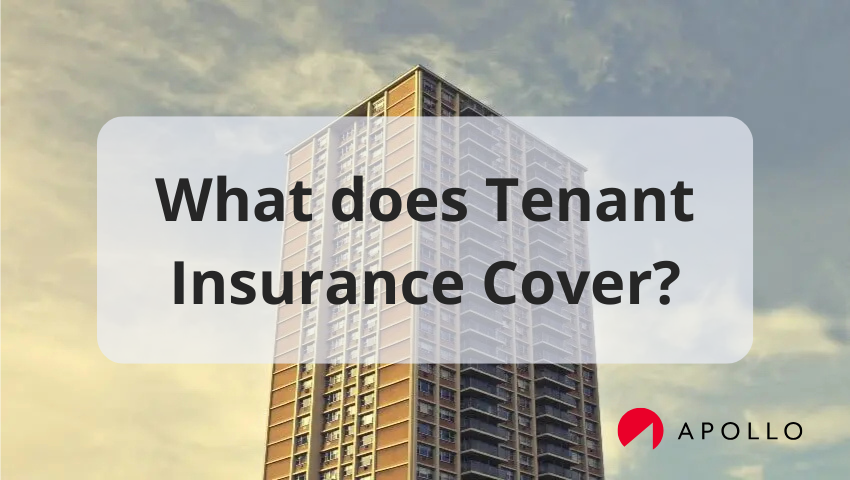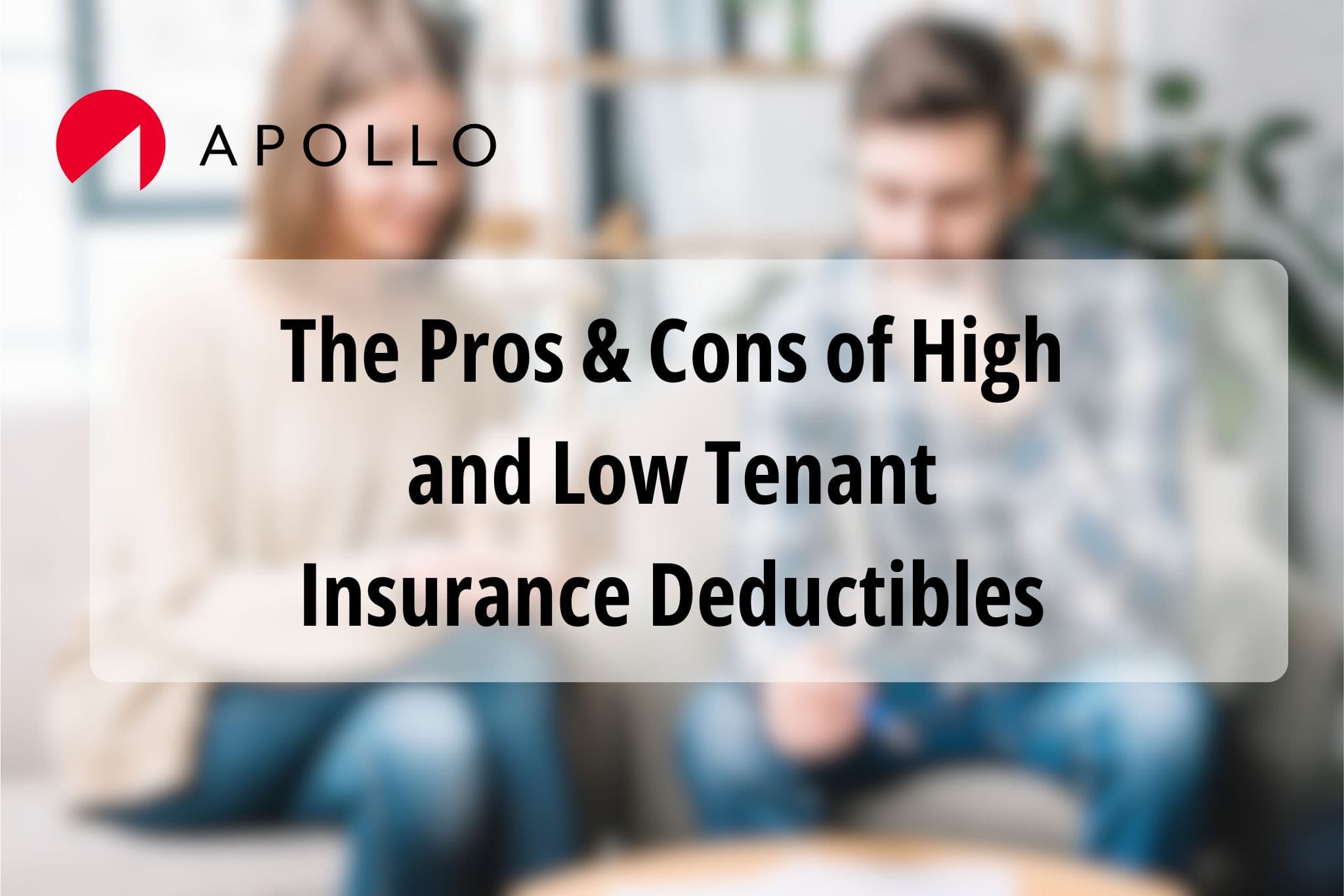What Does Tenant Insurance Cover?

Written by Stephen Dyck
Ever wonder what would happen if your apartment flooded, your laptop got stolen, or a guest slipped and fell during a dinner party? If you’re renting, tenant insurance helps cover the unexpected, and gives you the peace of mind that your stuff, your space, and your wallet are protected.
Whether you’re signing your first lease or just shopping around for better coverage, here’s what you need to know about what tenant insurance actually covers.
What’s Covered by Tenant Insurance?
Tenant insurance (also known as renters insurance) typically includes:
Personal belongings: Coverage for things like clothes, electronics, and furniture
Personal liability: In case someone gets injured in your rental or you cause accidental damage
Additional living expenses: If you can’t live in your unit due to a covered loss
Now, let’s break each of those down.
What Is Tenant Insurance?
Tenant insurance is a policy designed for renters. It protects your personal property, helps cover liability claims, and can even pay for a hotel if your apartment becomes uninhabitable.
Landlords have insurance too, but it only protects the building, not what’s inside your unit or the financial fallout if something goes wrong.
Think of tenant insurance as a financial safety net for renters. You may not own the space, but everything inside of it is on you.
What Does Tenant Insurance Cover?
1. Your Belongings
If something like a fire, flood, or break-in damages your personal property, tenant insurance can cover the cost of replacing it, up to your policy limit.
This includes:
Electronics like laptops, phones, or TVs
Furniture and appliances
Clothing, shoes, and accessories
Kitchenware and household items
Sports equipment or instruments
Some policies also include coverage for stolen bikes or items taken from your car.
Pro tip: Make a digital inventory of your stuff. It makes claims easier, and can help you figure out how much coverage you really need.
2. Personal Liability
Accidents happen, even the ones you never see coming. If you accidentally damage someone else’s property, or if a guest is injured in your home, you could be held financially responsible.
Your tenant insurance policy may cover:
Medical bills for an injured guest
Legal costs if you’re sued
Accidental damage to your landlord’s property or neighbouring units (think: overflowing bathtub)
Example: You forget a candle burning, and it causes smoke damage to your unit — and your neighbour’s. Liability coverage can help cover the costs.
3. Additional Living Expenses (ALE)
If your unit becomes unliveable due to a covered event like a fire or major water damage, ALE coverage helps with the cost of:
Temporary housing (hotel, short-term rental)
Meals
Laundry
Pet boarding
You focus on getting back on your feet. Your insurance helps cover the rest.
What’s Not Covered?
Every policy has exclusions. Common ones include:
Damage from long-term neglect (e.g., mold or pest infestations)
Damage from earthquakes or floods (unless you add these as optional riders)
High-value items beyond the standard limit (like fine art, luxury jewelry, or rare collectibles)
Want protection for specific things? Ask about optional coverage add-ons.
Why You Need Tenant Insurance (Even If It’s Not Required)
Some landlords make tenant insurance mandatory, and for good reason. But even if it’s not a lease requirement, having a policy is one of the smartest (and cheapest) moves a renter can make. Why?
Your landlord’s insurance won’t cover your stuff
Replacing everything after a loss could cost thousands
Legal claims can be expensive, even for honest mistakes
It’s affordable: many policies start at less than $20/month
And with APOLLO Insurance, you can get a quote, buy a policy, and get proof of insurance all online, in just a few minutes.
What Coverage Limit Should You Choose?
There’s no one-size-fits-all answer, but here’s a simple way to think about it:
Belongings: Estimate the total value of everything you own
Liability: $1M is common, but $2M adds peace of mind
ALE: Consider how much it would cost to live elsewhere for 2–4 weeks
What Does It Mean to Choose a Deductible?
Choosing an insurance deductible means selecting the amount you will pay out of pocket before your insurance coverage kicks in. This is the amount you agree to pay upfront for a covered loss or damage before your insurance company starts paying for the remaining costs. A higher deductible usually results in lower monthly premiums, while a lower deductible often means higher monthly premiums.
What deductible should I choose?
It’s important to choose a deductible that you can comfortably afford in case of an unexpected event, but also one that won’t break the bank if something does happen. Before choosing a deductible, it’s essential to review your policy and understand what types of events are covered and how much coverage you have overall. By selecting the right deductible for your needs, you can help protect yourself financially from unexpected events without paying more than necessary for your insurance coverage.
Example of how your deductible cost can affect you
Your deductible is the amount you pay out of pocket before your insurance kicks in. Choosing a higher or lower deductible impacts both your monthly premium and what you pay in the event of a claim.
Here’s how it works:
If your deductible is $500 and a fire causes $5,000 in damage to your belongings, you pay $500, and your insurance covers the remaining $4,500.
If you have a $1,000 deductible, you’ll pay more upfront ($1,000) before insurance steps in, but your monthly premium will be lower.
A lower deductible, like $250, means less out-of-pocket cost when making a claim, but your monthly premium will be higher.
Finding the right balance depends on your budget and risk tolerance—do you prefer to save on premiums now or have lower costs if you need to file a claim?
Related Read: The Pros and Cons of a High Deductible Tenant Insurance Policy
APOLLO Insurance is Canada’s leading provider of tenant insurance, tailored specifically for renters and customizable to fit your unique lifestyle. Get your free quote in less than 2 minutes and we’ll send your policy documents right to your inbox.
Originally published March 9, 2023, updated January 29, 2026
Back to APOLLO MagazineTenant Insurance Starting at $13/month
The only tenant insurance provider with a Best Price Guarantee. Already have a policy or quote? We’ll beat the price. Guaranteed. Terms apply.
4.7 rating
Tenant Insurance Starting at $13/month
The only tenant insurance provider with a Best Price Guarantee. Already have a policy or quote? We’ll beat the price. Guaranteed. Terms apply.
4.7 rating
Relevant articles
Getting insured is as easy as 1 - 2 - 3

Tell us (very little) about yourself
Just tell us your address, your name, email and phone number. And that's it. We'll give you a price in less than a minute.

Pay online easily and securely
You can choose to pay monthly or save money by paying for the entire year in one easy payment.

Get your documents in your inbox - instantly
As soon as you complete your purchase, you'll find your proof of insurance and policy documents waiting for you in your inbox.
Get covered today - it couldn’t be easier
We’ve provided more than 1,000,000 quotes to Canadians just like you. Give it a try!


